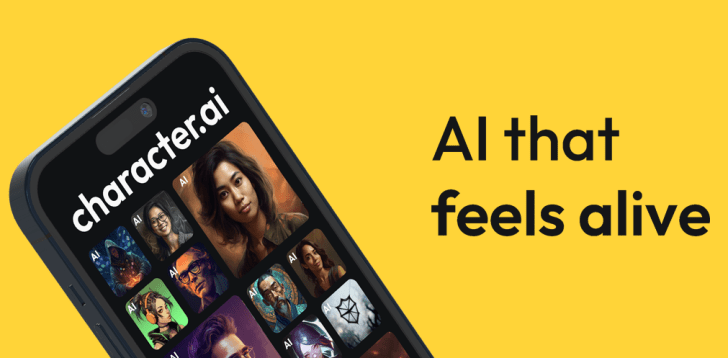Character.ai, the AI app maker that lets users design their own AI characters, is catching up to ChatGPT in terms of mobile app usage. According to a recent analysis by market intelligence firm Similarweb, the iOS and Android apps for the a16z-backed Character.ai are now seeing 4.2 million monthly active users in the U.S., compared with nearly 6 million monthly U.S. actives for ChatGPT’s mobile apps.
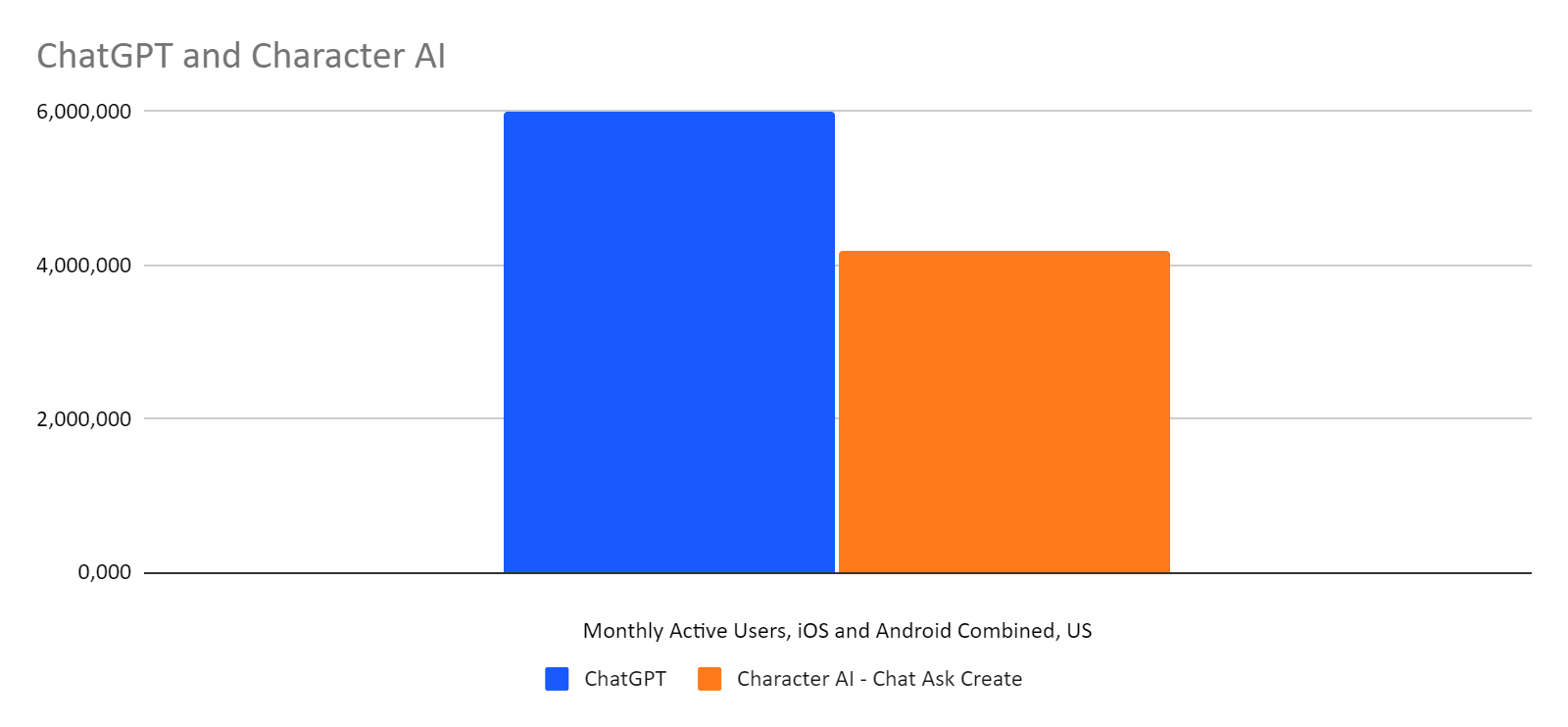
Image Credits: Similarweb
That’s notable growth following Character.ai’s May 2023 launch, when the startup shared it had topped 1.7 million installs in its first week. Of course, installs don’t equate to users, much less active ones. In fact, the average mobile app has a 30-day retention rate of 3% to 4%, and uninstall rates are above 40% after 30 days, per data from mobile marketing firm Appsflyer. That implies that Character.ai has been able to successfully retain some of its early adopters and grow its usage in the months since its debut.
That said, ChatGPT still broadly outpaces Character.ai on the web — likely because many of Character.ai’s users prefer to build and interact with their AI chatbots on their personal mobile device, not through a website.
And globally, Android data indicates that ChatGPT is still far ahead of Character.ai on mobile as well, with 22.5 million monthly active users for ChatGPt versus 5.27 million for Character.ai.
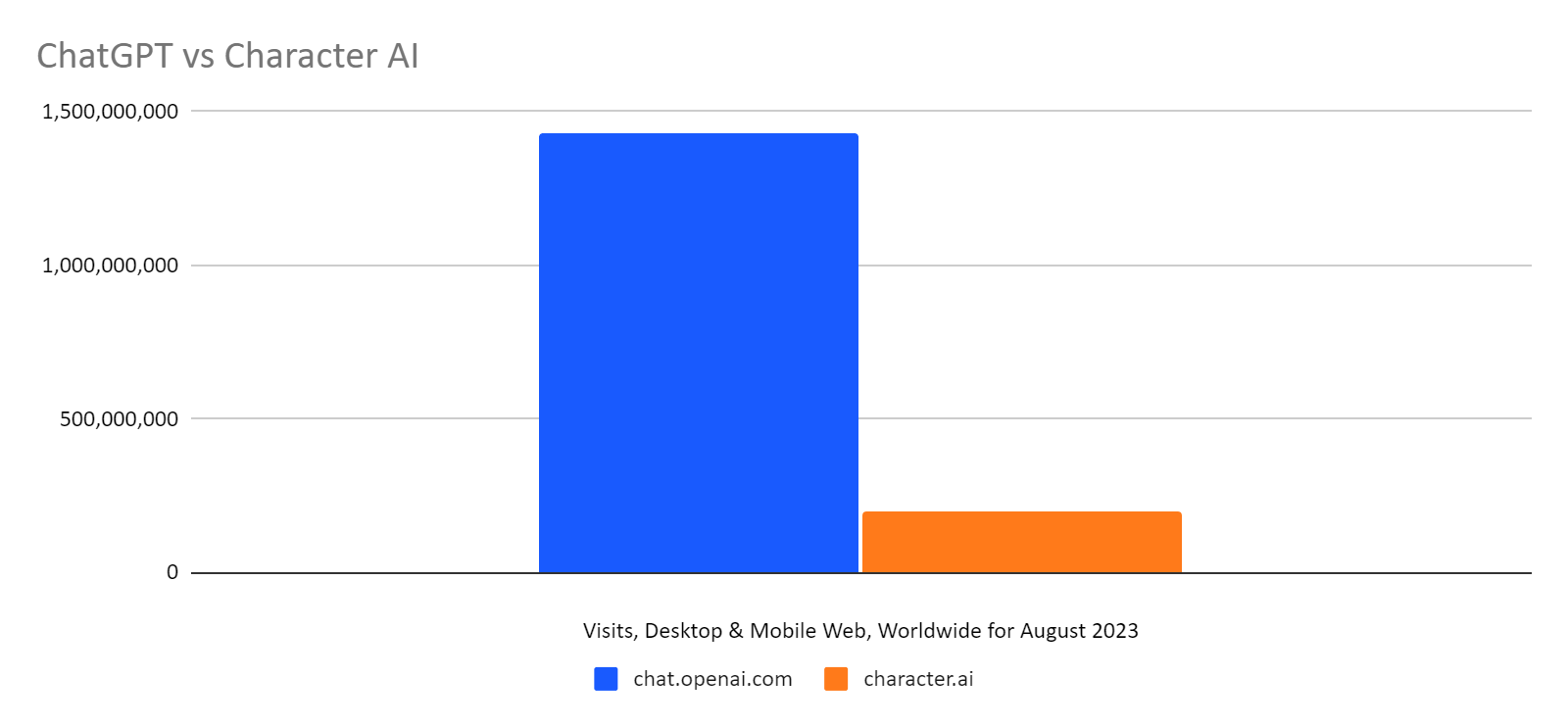
Image Credits: Similarweb
However, Character.ai is attracting a much younger demographic than ChatGPT and other AI apps. On the web, for example, Character.ai draws in nearly 60% of its audience from the 18- to 24-year-old age bracket, a figure that held up over the summer even as website traffic to ChatGPT dropped.
In July, 18- to 24-year-olds made up only 27% of ChatGPT’s traffic, down from 30% in April.
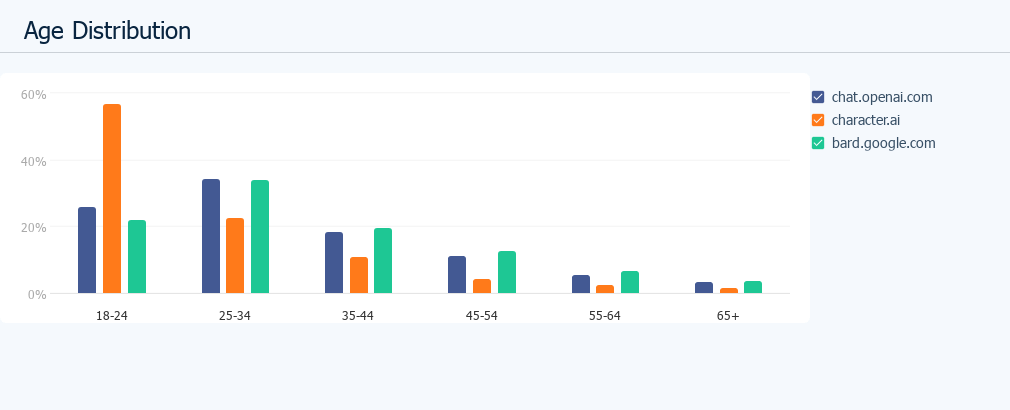
Image Credits: Similarweb
Other AI providers also have lower adoption among younger demographics in the 18 to 24 age group, the new data indicates. Compared with Character.ai’s 60% figure, for example, Perplexity.ai, Midjourney, Anthropic, and Bard’s percentages of the 18- to 24-year-old demographic group were at 22.7%, 22.3%, 25.3%, and 18.46%, respectively.
For the third month in a row, ChatGPT also saw its global website visits decline by 3.2% to 1.43 billion in August, after 10% drops for each of the two previous months, Reuters reported, citing Similarweb’s data. Plus, the amount of time on ChatGPT’s website declined from an average of 8.7 minutes in March to 7 minutes as of August.
Similarweb theorized that Character.ai’s usage held up over the summer months because the app is designed for entertainment, not as a homework helper or research assistant. However, Character.ai’s website traffic had dipped a bit over the summer, but mobile users adopting Character.ai’s iOS and Android apps made up for it, the firm noted.
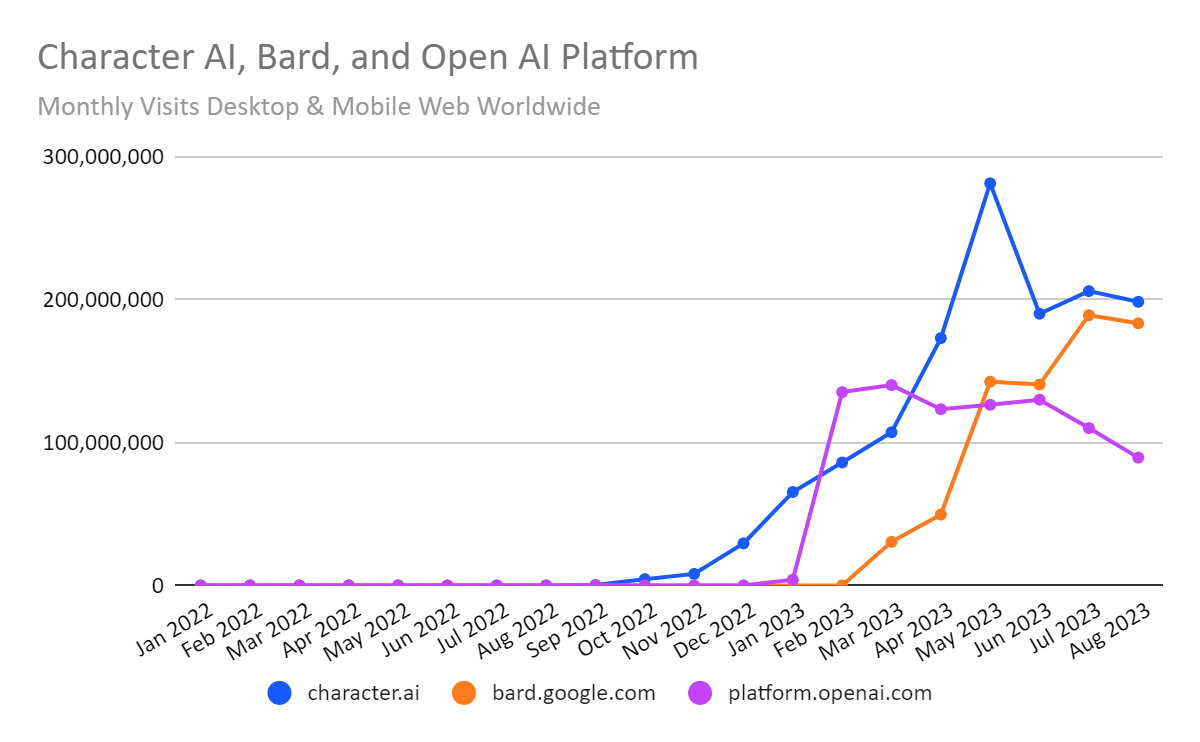
Image Credits: Similarweb
ChatGPT’s declines are turning around now, too. Similarweb found that ChatGPT’s traffic has started to bounce back in the U.S. as the school year resumed, with visits to the website increasing by 0.4% in August. Unique visitors also rose 3% month-over-month in the U.S. and 0.3% worldwide in August, after drops in June and July.
Character.ai has plenty of runway left to further grow its user base, given the startup’s massive $150 million in Series A funding announced earlier this year, valuing its business at $1 billion. Although there are a number of AI character generators on the market, investors were betting on Character.ai’s founders. The startup was created by Noam Shazeer and Daniel De Freitas, AI experts who previously led a team of researchers at Google that built LaMDA (Language Model for Dialogue Applications), a language model that helps power conversational AI experiences.
At the time of a16z’s investment, GP Sarah Wang referred to the founders as “trailblazers in AI for nearly two decades.”
“They’ve built a powerful platform, with an end-to-end combination of both model and application that allows Character.AI to continuously improve its product as more people create and engage with its characters,” Wang had said.
Of course, it remains to be seen if young people will continue to adopt Character.ai or if it will turn out to be another AI fad. Character.ai hasn’t responded to a request for comment on Similarweb’s data, but we’ll update if one is provided.
